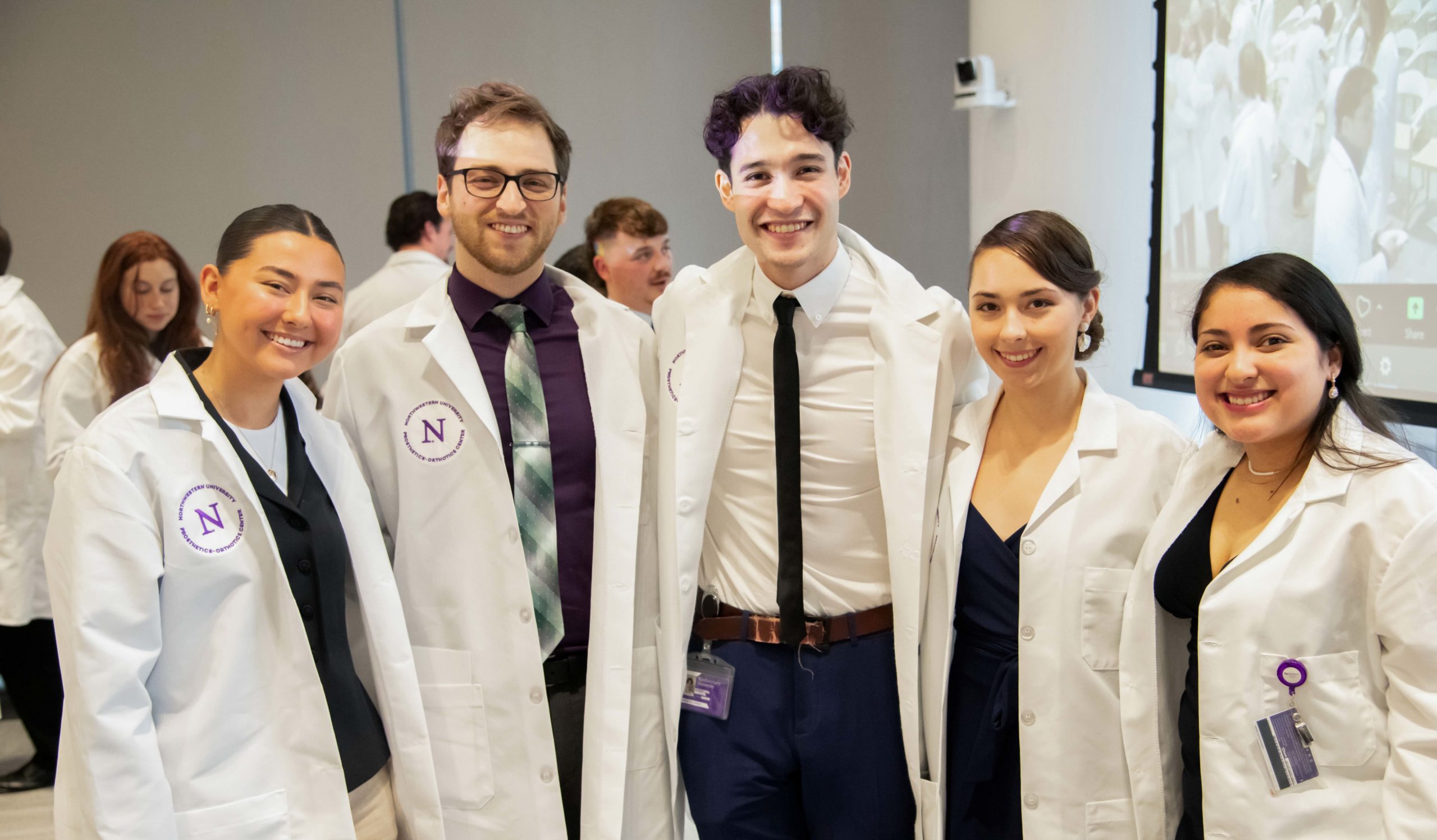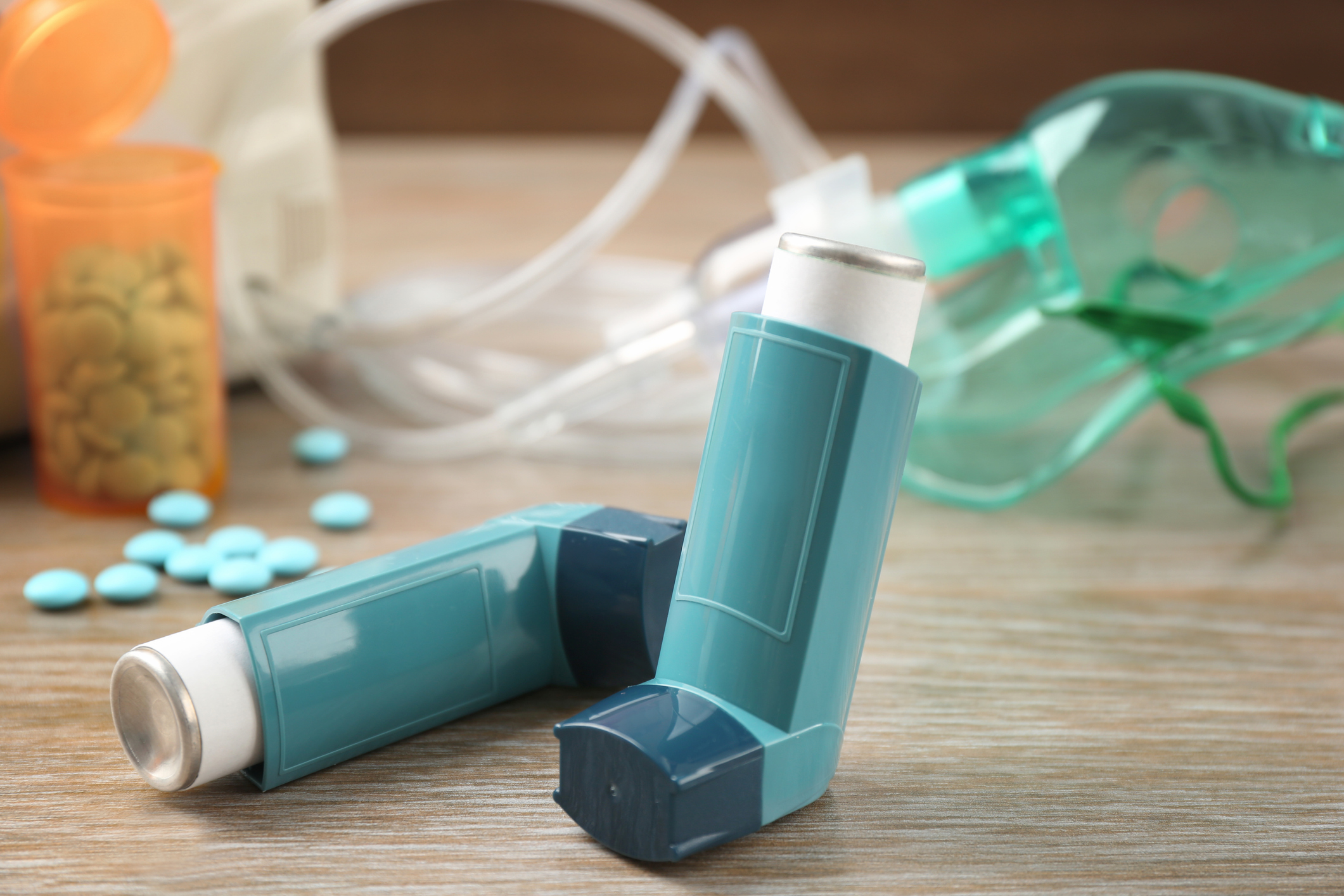Media Coverage
The work done by Northwestern University Feinberg School of Medicine faculty members (and even some students) is regularly highlighted in newspapers, online media outlets and more. Below you’ll find links to articles and videos of Feinberg in the news.
-
New York Times
–
Get Your Cholesterol in Check
While 86 million adults in the United States have high cholesterol levels, one third of Americans say they haven’t had their numbers checked in the last five years. Getting your cholesterol tested — and under control — is critical to preventing heart disease and other serious health problems. But figuring out when to test and what to make of the numbers can feel daunting. Most people don’t have any symptoms until their arteries are already severely clogged. That’s why doctors look to cholesterol levels to catch and treat cardiovascular problems early, said John Wilkins, MD, an associate professor of cardiology and epidemiology at Northwestern University Feinberg School of Medicine. A doctor may recommend cholesterol-lowering drugs if you have already had a heart attack or stroke or if an ultrasound or angiogram shows significant blockages in your arteries. A provider may also consider medication if your LDL cholesterol is 190 or higher. For most other people, doctors consider cholesterol levels in combination with age, family history of heart disease, smoking history and other factors before deciding whether to prescribe a drug, Wilkins said “No one has zero risk,” he said. “But there’s a lot you can do to mitigate it.”
-
USA Today
–
Americans don’t sleep enough. The long-term effects are dire, especially for Black people
Poor sleep is linked to a host of health problems, among them some of America’s greatest killers, most of which plague Black Americans. The data indicates quality sleep is harder to come by for Black people, with economic, social and environmental factors all playing a role. Along with heart health, poor sleep is linked with increased risk of hypertension, diabetes and obesity, as well as cognitive issues like Alzheimer’s – all of which disproportionately plague Black communities. For instance, 47% of Black adults have been diagnosed with cardiovascular disease, compared to 36% of white adults. Black men have a 70% higher risk of heart failure than white men; for Black women, the figure is 50%. Black adults have the highest incidence of severe obesity, and 59% of Black adults have hypertension, the highest rate among all racial and ethnic groups. Additionally, they are more likely than white adults to have strokes and more likely to die as a result. Mercedes Carnethon, PhD, a professor of preventive medicine at Northwestern University Feinberg School of Medicine in Chicago, said research now needs to go more than skin-deep to determine what is driving the disparities. “The reasons are not the color of one’s skin,” Carnethon said. “They’re socioeconomic factors, household characteristics, and cultural values around sleep. They’re the occupations that people hold. It’s not race as biology but race as social factor, and by identifying the social factors, we can think of strategies to address them.”
-
The Washington Post
–
‘Bachelor’ hopeful Daisy Kent has Ménière’s disease. Here’s what to know.
Daisy Kent, a 25-year-old from Becker, Minnesota, a contestant on The Bachelor, has emerged as an early fan favorite, in part because of her openness about her profound hearing loss after developing a rare condition called Ménière’s disease. Experts said Kent is helping raise awareness about a condition that is not very well-known or understood, and they are hopeful that this can drive more research on the disease. Kent also recently wrote a children’s book called “Daisy Doo: All the Sounds She Knew” about living with a cochlear implant. Ménière’s disease is a condition in which people experience fluctuating hearing loss, feelings of fullness in their ear, tinnitus, dizziness and episodes of nausea-inducing spinning sensations called vertigo. Typically, Ménière’s disease impacts one ear, though experts estimate that anywhere from 10 to 40 percent of patients will eventually get symptoms in their second ear. Kent has said she has symptoms in both ears. At first, someone with Ménière’s disease usually experiences fluctuating symptoms. “It’s like a smoldering fire, and then all of a sudden it flames up,” said Alan G. Micco, MD, professor of otolaryngology, medical education and neurological surgery at Northwestern University Feinberg School of Medicine. There’s no known cure for the condition. But, there are treatments to manage a patient’s flare-ups or attacks, which can be targeted to their specific triggers.
-
TIME
–
Some Hospitals Are Requiring Masks Again. Will Other Public Places Be Next?
Hospitals have recently brought back mask mandates. The rising number of COVID-19 hospitalizations is prompting many healthcare systems to require masks once again. Masks aren’t perfect, and some are more effective than others, but studies show that they do reduce transmission on the whole. “Masks work,” says Robert Murphy, MD, professor of medicine at Northwestern Feinberg School of Medicine. “If you’re interested in public health, requiring masks in places like hospitals is what we need to do. If everybody is wearing a mask, it works even better to prevent transmission of disease.” Hospitals aren’t the only places vulnerable people gather, so Murphy suggests mask mandates could be extended to long-term care facilities and assisted living spaces. He also believes mask requirements in these settings should become a regular feature every year during respiratory season. “It’s probably a very good idea, from a public health standpoint, to say that this is something that happens every winter from December to February,” he says. “It just makes common sense. If universal masking is never going to be accepted at this point, let’s protect the most vulnerable, and hospitals are places where there are a lot of vulnerable people.” Murphy is also aware that “people in the U.S. are very nervous about getting into wider mask mandates.” While masks make sense in the healthcare setting, public health experts aren’t naïve enough to believe that they will return to other public places.
-
NPR
–
Scientists can tell how fast you’re aging. Now, the trick is to slow it down
It turns out, we all age at varying rates. Super-agers may have great genes, but research shows our habits and routines — everything from what we eat and how we move our bodies to who we spend our time with — matter a lot, when it comes to aging well. Many scientists are optimistic that we’re on the cusp of breakthroughs. Not only to help us live longer, but — more importantly — to extend the number of years we live with good health. This is the goal of researchers at the Human Longevity Lab at the Northwestern University Feinberg School of Medicine. They’re recruiting study participants so they can test what kinds of interventions may slow the rate of aging. Our biological age may be malleable. The hope is that we can slow down our rate of aging — by making changes to lifestyle. Down the line, there may be anti-aging pills or other interventions. “That’s the big ray of optimism that comes through all of this — the possibility that we can slow down aging and extend the health span of people,” says Douglas Vaughan, director of the Longevity Institute. Health span is the number of years we live with good health. “It can be changed very rapidly in experimental models and probably in people, too,” he says. “There are lots of people who’ve been dealt a bad hand with regard to aging,” Vaughan says. Their goal is to find affordable, evidence-based interventions that can benefit everyone, regardless of socioeconomic status.
-
Yahoo! News
–
Heart disease is the leading cause of death. Why don’t more U.S. adults know that?
Despite being the nation’s biggest killer for 100 years, more than half of adult Americans don’t know that heart disease is the leading cause of death in the U.S., according to a new survey published on Wednesday by the American Heart Association (AHA). “Heart disease” can refer to several types of heart conditions, but the most common in the U.S. is coronary artery disease, which affects blood flow and can lead to a heart attack. The AHA says there are about 1,905 deaths from heart disease each day in the United States, including heart attacks, and someone in the U.S. will have a heart attack about every 40 seconds. Sanjiv Shah, MD a professor of cardiology at Northwestern University Feinberg School of Medicine, tells Yahoo Life he isn’t surprised by the AHA survey’s findings. “Death due to heart disease often happens quickly,” he says, “so it may not come to mind like death due to cancer.” While treatments for heart disease have come a long way in recent decades, Shah says many cancers are still difficult to treat, which “may result in the misperceptions about the leading causes of death.” Ways to combat heart disease include prioritizing sleep, not smoking, eating healthy and exercising 30 to 60 minutes every day.
-
Yahoo! News
–
Why everyone should wear an eye mask to bed
Any light making it into our retinas at night can harm our health and ability to function the next day, according to The Washington Post. The solution? Eye masks. Wearing an eye mask can benefit your sleep cycle in many ways. Phyllis Zee, MD, PhD, a neurologist and director of the Center for Circadian and Sleep Medicine at Northwestern University’s Feinberg School of Medicine, found light at night to be less detrimental for healthy individuals, according to The Washington Post. If it’s difficult to create a completely dark environment to sleep in, so Zee offers several tips. Getting an eye mask and using blackout curtains can really help create a dark sleep environment. Putting away electronic devices also gets rid of unwanted light. Getting light during the day may also help to improve sleep. To offset detrimental effects of light at night, try getting more light during the day to improve sleep, Zee said.
-
New York Times
–
The Link Between Birth Control Pills and Sex Drive
The connection between the birth control pill and sexual desire has been complicated from the start. The pill is known for having ushered in a sexual revolution, and yet for some, the cocktail of hormones that prevents pregnancy can also dampen libido. A loss of sexual desire can manifest in a variety of ways, said Lauren Streicher, MD, clinical professor of obstetrics and gynecology at Northwestern University Feinberg School of Medicine. Anecdotally, Dr. Streicher has found that some women might feel changes to their libido within weeks of starting the pill, while studies have found that, for others, it can take months or years for a shift to happen. For some, it might start off with the loss of the spontaneous desire for sex and then evolve into a lack of arousal in response to stimuli, she said. And some people on the pill develop a condition called hormonally mediated vestibulodynia, in which the tissues at the opening to the vagina become dry, painful and “very pale,” Dr. Streicher said. A 2002 study found that those who used oral contraceptives had a higher likelihood of developing these physical symptoms than those who didn’t use the pill, though the overall risk remains low. “If somebody has vestibulodynia, they’re going to lose their libido,” Dr. Streicher said, adding, “If your vagina hurts like crazy, then your brain is going to say ‘I don’t want to do this.’”
-
WebMD
–
Neuroticism Isn’t Funny and May Impact Your Health
In real life, neuroticism has been linked to poor health, and today, more science supports that link. “There’s a lot of evidence now that personality traits are related to a whole host of health outcomes,” said psychologist Daniel Mroczek, PhD, director of personality and health at Northwestern University. Neuroticism, in particular, appears problematic. People high in neuroticism generally see the world as distressing and unsafe. They can be moody, tense, and prone to sadness. Research suggests that neuroticism raises the risk of mental disorders such as depression and anxiety as well as physical illnesses like heart disease and some cancers. Still, some researchers have suggested that heightened attention to troubling symptoms could potentially benefit neurotic people. After all, if you have that suspicious mole checked out early – and it actually is cancer – that cautious attitude could save your life. In a 2023 study, Mroczek and colleagues discovered that neurotic people are indeed more likely to visit their family doctors. Yet, evidence linking “healthy neuroticism” to better health outcomes is slim, Mroczek said. When he and his colleagues looked at data from 15 studies involving almost 50,000 people, they discovered that healthy neuroticism didn’t lower the risk of high blood pressure, diabetes, or heart disease.
-
Inside Higher Ed
–
How Many Casualties Would a Plagiarism War Cause?
The heavy pressure academics are under to keep publishing fuels the problem of plagiarism, however widespread it may be. Yet, being able to detect every instance of plagiarism is near impossible. Millions of papers are being published per year and expecting a human peer reviewer to discern every instance of plagiarism is unrealistic. Some academics said that peer review—the traditional process when journals invite scholars in the field of a submitted article to review it, suggest edits and consider whether it should be published at all—doesn’t involve much checking for plagiarism. They said peer reviewers don’t have enough time for that and aren’t expected to do it. Mohammad Hosseini, PhD, an assistant professor at Northwestern University and an associate editor of the Accountability in Research journal, wrote in an email that peer reviewers “are volunteers and already under a lot of pressure. Expecting them to also check citations is not realistic.” He said it’s “also unreasonable to expect dissertation committees to check every single citation because dissertations might have hundreds.”






